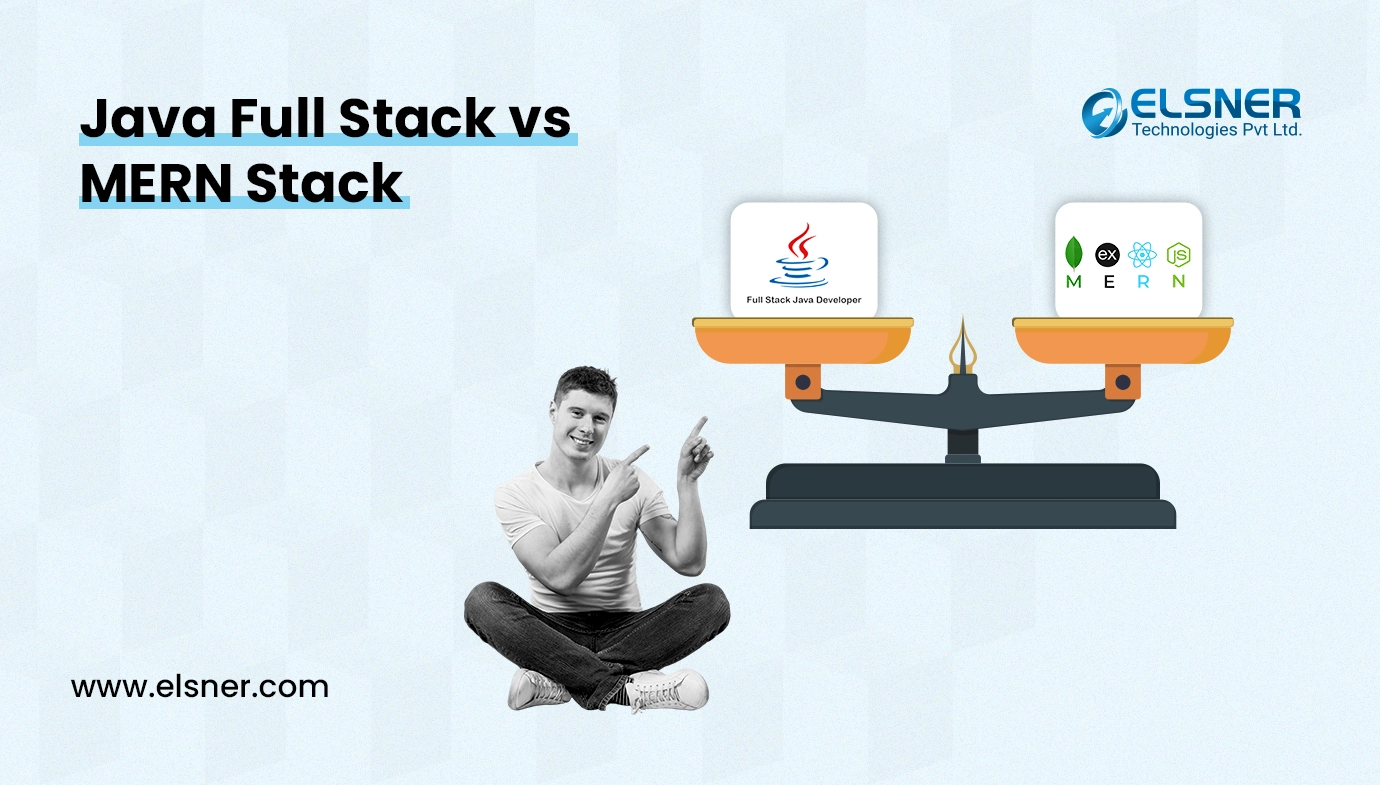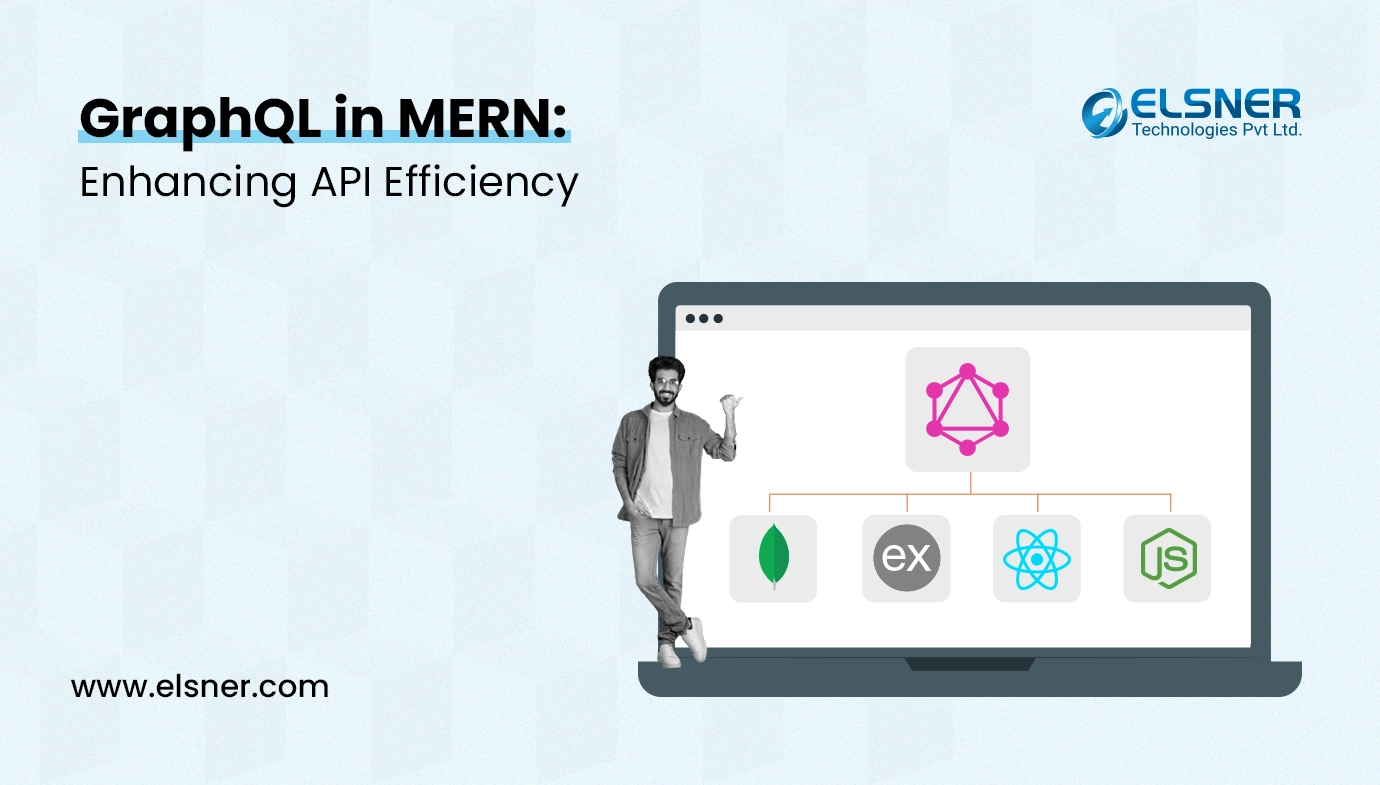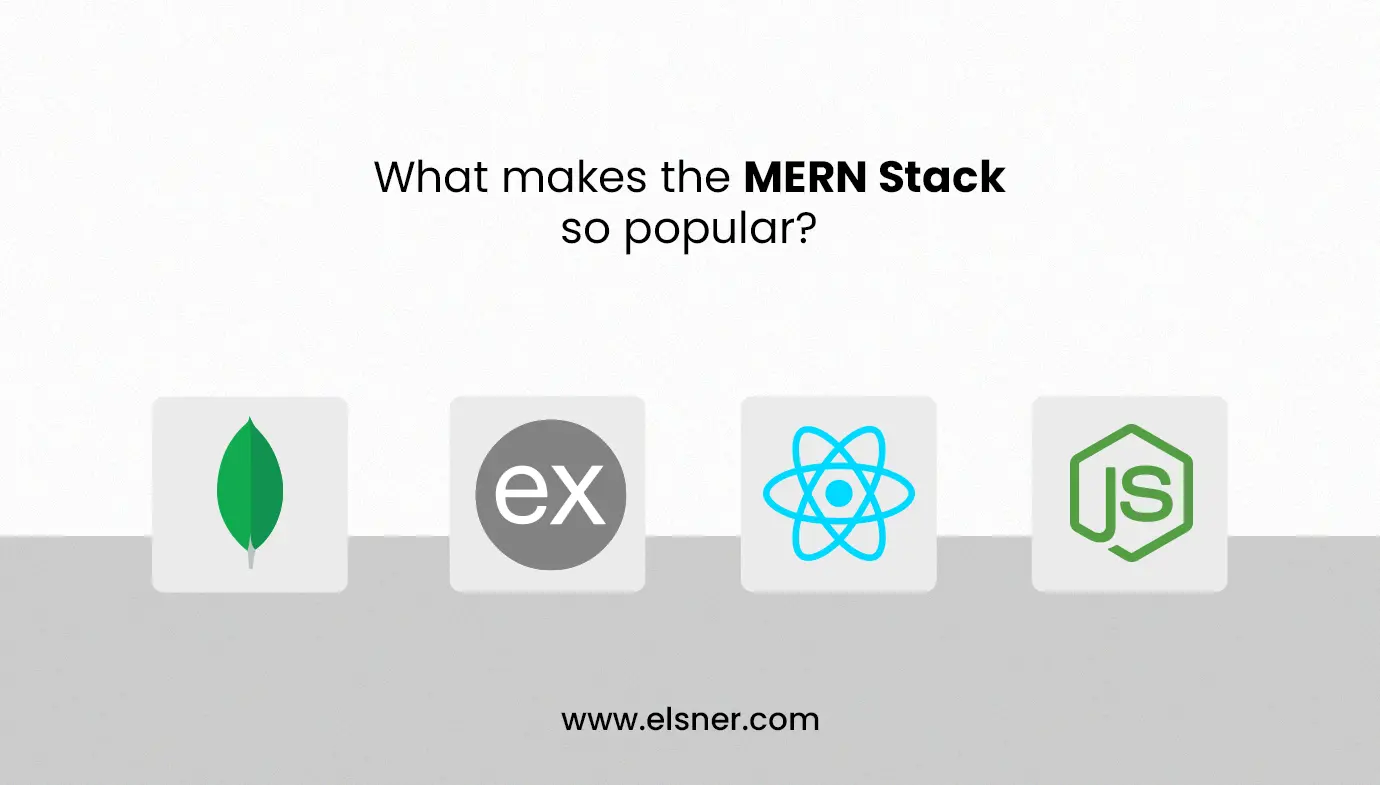Table of Contents
- What is Java Full Stack?
- What is MERN Stack?
- A Detailed Comparison between Java Full Stack and MERN Stack
- Learning Curve and Skill Requirements
- Scalability and Performance
- Efficiency and Speed of Development
- Ecosystem and 3rd Party Libraries
- Use Cases: What to Go For?
- Which Stack to Choose for Crafting Web Apps Quickly?
- Which of the Stack is More Popular between MERN Stack and Java Full Stack?
- Comparing the Performance of MERN Stack and Java Full Stack
- What Factors Affect the Decision Between Java Full Stack and MERN Stack?
- Wrapping Up
|
Getting your Trinity Audio player ready...
|
Are you a business owner looking forward to diversifying in the tech world? If so, it is suggested that you get started with the right development procedure, which involves selecting the right technology stack. Are you confused and lacking better clarity on this? Two of the most popular options available on the market are the MERN stack and Java full stack. Now, you may be confused about which one to choose between these.
Don’t worry; you will get a clear answer to this question by reading this detailed blog post from the start to the end. In this comprehensive guide, we will compare Java full stack and MERN stack development in detail, which will help you to choose the best one for your needs. So, before you opt for the assistance of a professional MERN full stack developer, consider reading this:
What is Java Full Stack?
Java full stack typically entails a software development approach where Java is employed across every single layer of the application stack. It includes both the back end and the front end.
What is MERN Stack?
MERN full stack refers to a popular and modern technology stack typically employed for building web apps. It entails four main technologies, which include the following:
- MongoDB: It is a NoSQL database that stores data in a flexible, JSON-like format. MongoDB is well-known for its ease of use, high performance, and scalability.
- Express.js:It refers to a web application framework for Node.js, which effectively simplifies the overall process of building server-side applications. Also, it comes with a robust set of features that facilitates easy handling of HTTP requests and the creation of APIs.
- React: It is a JavaScript library that is employed to build user interfaces. React lets developers come up with interactive and dynamic UI components in an efficient manner. It typically follows a component-based architecture, making it effortless to manage and reuse UI elements.
- Node.js: It refers to a runtime environment that lets developers run JavaScript code, especially on the server side. Node.js is known for offering an event-driven, non-blocking I/O model that is both efficient and lightweight for managing concurrent requests.
A Detailed Comparison between Java Full Stack and MERN Stack
Now that you know what Java Full Stack and MERN Stack is, it is time to compare both in detail so that you can make the right choice for your needs. So, let’s find out:
-
Learning Curve and Skill Requirements

The MERN stack heavily employs JavaScript for its components. So, it becomes an excellent option for developers already proficient in this particular language. It means that if your team is well-versed in JavaScript, then adapting to the MERN stack can be effortless and smooth.
On the contrary, Java Full Stack necessitates developers to have knowledge of Java, which could be beneficial for those who have previous experience with this language. Thus, in this regard, it is always a good idea to properly evaluate the current skill set of your team and weigh the learning curves that are linked with each of the stacks.
-
Scalability and Performance

Node.js development, which is known to be the MERN stack, comes with asynchronous architecture, which makes it best suited for real-time applications. Also, it is ideal for those situations that demand high concurrency. This architecture typically facilitates efficient and seamless handling of multiple connections and that too in a simultaneous manner. Due to this reason, it is considered to be a strong contender for apps that necessitate quick data processing and updates.
Java’s full stack is known for offering a mature ecosystem that helps manage scalability, especially in large apps. Also, it comes with powerful tools and libraries, so it can effectively deal with the challenges of building and maintaining complicated systems tasked with accommodating high traffic volumes.
-
Efficiency and Speed of Development

There is employment of a single language in the MERN stack across all components which is known as JavaScript. It helps in expediting the development speed. Developers can seamlessly transition between various parts of the stack without the interruption of switching between languages. This level of consistency aids in fostering swifter iterations and facilitates more efficient development cycles. For more details, you can get in touch with MERN stack developers.
On the other hand, Java Full Stack adopts a comprehensive approach and offers a broader range of tools. It can sometimes lead to a slower onset of development pace. This is especially due to the extra considerations that are necessary for both back-end and front-end components.
-
Ecosystem and 3rd Party Libraries
The MERN full stack is known for leveraging the vast ecosystem of JavaScript, which is rich in 3rd party tools and libraries. This abundance of resources can help effectively speed up the development process by offering pre-built solutions for different challenges. However, it is important to note that the availability of a variety of options can sometimes result in a paradox of choice, which can make it difficult to choose the right library.
Java full stack, due to its long-standing presence in the development world, possesses a vast selection of well-established frameworks and libraries that effectively cater to distinct requirements. These tools have proven incredibly helpful and are known for offering a sense of reliability and stability. Thus, it facilitates the easy building of complex applications.
Use Cases: What to Go For?
The use cases of your project are something that helps in making a decision between the Java full stack and MERN stack development. The MERN stack excels in those situations where MVP creation and fast development are important. It comes with a lot of flexibility, and its real-time abilities are incredible. Due to all these reasons, it is considered best-suited for startups looking forward to iterating quickly and launching their product to market.
On the contrary, Java full stack thrives well in enterprise-level applications that necessitate a high degree of scalability, security, and robustness. So, if your project entails intricate business logic and demands stability, especially under heavy traffic loads, Java full stack could be the perfect option.
Which Stack to Choose for Crafting Web Apps Quickly?
MERN may be the preferable option if the main focus is on development speed and a contemporary JavaScript-based tech stack. Whereas, Java might be the ideal option to choose, if you require stability and scalability and possess a team with Java expertise. Choose a reliable full stack MERN developer to achieve the best-in-class outcomes.
Which of the Stack is More Popular between MERN Stack and Java Full Stack?
Java full stack has maintained enduring popularity in the software development community for decades. The unparalleled reliability, scalability, and robustness provided by Java have played a big role in its ongoing relevance. Not only that, but there is the availability of a wealth of tools, frameworks, and libraries within the Java ecosystem, which further adds to its popularity.
MERN stack is incredibly popular among startups and small to medium-sized businesses. The real-time capabilities, flexibility, and simplicity provided by JavaScript-based technologies have played a significant role in its widespread adoption.
However, both of these come with their own set of strengths and weaknesses. So, it is crucial to make a choice based on developer preferences and your distinct project needs. Although Java full stack is considered best-suited for building robust and scalable enterprise apps, the MERN stack offers simplicity and agility, making it great for rapid prototyping and startups. Ultimately, the selection between the two is decided by multiple factors, including scalability requirements, project scope, team expertise, and development timeline.
Comparing the Performance of MERN Stack and Java Full Stack
Whenever it comes to performance, both MERN stack and Java full stack possess their strengths and weaknesses. Java full stack is known for its statically typed nature and its JVM optimizations. So, it excels in effectively managing computationally intensive tasks and maintaining consistent performance under heavy loads. However, due to its enterprise-focused architecture, it may suffer from higher memory consumption and longer development cycles.
On the contrary, the MERN stack puts utmost emphasis on responsiveness and agility. This is because it employs event-driven architecture and a lightweight runtime of JavaScript. As a result, it facilitates smooth user experiences and fast time-to-market delivery. In terms of raw performance, the MERN stack is slightly on the lower side when compared to the Java full stack. However, it compensates with easy scalability, real-time abilities, and faster development iterations.
So, when the performance requirements are strict, especially for large-scale enterprise applications, Java full stack may be the ideal option to choose. Meanwhile, the MERN stack provides an excellent solution for startups and small- to medium-sized projects or applications that demand fast development and real-time features.
What Factors Affect the Decision Between Java Full Stack and MERN Stack?
As already mentioned in the above section, multiple factors impact the choice between Java full stack and MERN stack. Some of these include ecosystem support, development speed, performance, scalability, etc. Let’s discuss this in detail:
- Team Expertise: It is essential to take into consideration the expertise of your development team. The MERN stack may be a better choice if they possess more proficiency in JavaScript. However, choosing Java full stack may be more suitable if they have experience with Java.
- Performance and Scalability: Both stacks possess scaling capability. However, the choice of specific technologies within each of the stack and architecture decisions will significantly influence the performance and scalability. In this regard, it is important to consider your application’s specific scalability requirements and how well each stack can meet them.
- Community and Ecosystem: Java and MERN are known for having extensive ecosystems and active communities. While making your decision, you should consider the availability of tools, libraries, and support.
Wrapping Up
After reading this guide, we hope you can make a better choice between these technology stacks as per your project needs. If you are still facing any sort of difficulties, then it is a better idea to hire a professional MERN stack developer. The best part about getting in touch with these professionals is that they can assist you in achieving your goals on time. So, what are you waiting for?

About Author
Tarun Bansal - Technical Head
Tarun is a technology enthusiast with a flair for solving complex challenges. His technical expertise and deep knowledge of emerging trends have made him a go-to person for strategic tech initiatives. Passionate about innovation, Tarun continuously explores new ways to drive efficiency and performance in every project he undertakes.




